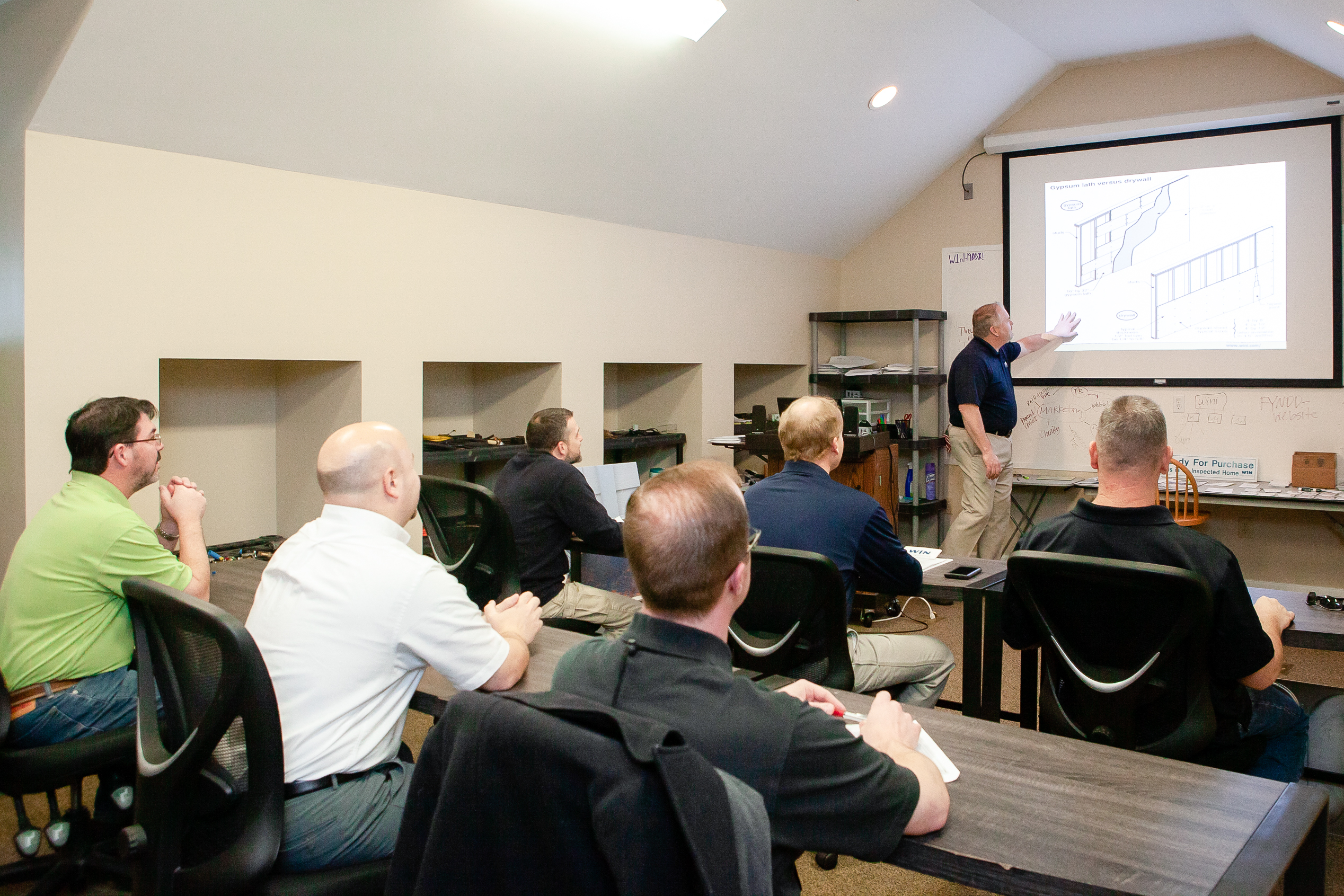Ready to Embark on an Exciting Journey with WIN?
Take the first step toward personal and financial freedom by filling out the interest form. One of our franchise advocates will be in touch with you soon!

In the ever-evolving world of real estate, there are many roles that play a pivotal part in ensuring smooth real estate transactions and safeguarding the interests of both buyers and sellers. Among these crucial roles is the home inspector. Home inspectors are trained to explore the ins and outs of a home, from its foundation to the roof, to identify potential health and safety issues and ensure the buyer is making an informed decision. Whether it’s identifying structural defects, outdated electrical systems, or potential safety hazards, their findings can influence purchase decisions, pricing, and even loan approvals.
However, to effectively and confidently take on this responsibility, aspiring home inspectors should first demonstrate their expertise. This is where the National Home Inspector Exam (NHIE) comes into play. A milestone in the journey of becoming a certified home inspector, the NHIE is more than just a test, it’s an affirmation of one’s dedication to upholding the standards of the industry and ensuring that home buyers and sellers can rely on their unbiased opinion. In this article, we’ll dive deep into various aspects of the NHIE and what you can expect from it, ensuring you’re well-prepared to embark on a rewarding career in home inspection.
The National Home Inspector Exam, commonly referred to as the NHIE, is a standardized examination designed specifically for individuals who aspire to become professional home inspectors in the U.S. Administered by the Examination Board of Professional Home Inspectors (EBPHI), this exam not only measures the knowledge and competence of potential home inspectors, but also ensures they meet a uniform standard of practice and ethical conduct.
So, why is it important? In many states, passing the NHIE is a mandatory step to earn a home inspector license. The exam covers crucial home inspection topics, from basic systems like plumbing and electrical to potential structural hazards, ensuring inspectors are well-equipped for their roles.
By undergoing this examination, aspiring home inspectors showcase their dedication to their craft, their knowledge of the industry, and their commitment to ensuring the safety and satisfaction of homeowners across the nation.
Eligibility for the National Home Inspector Exam (NHIE) often varies depending on individual state requirements. However, there are some common criteria and pathways that most candidates follow to be eligible:
It’s essential to consult with your state’s home inspector licensing board or regulatory agency to get detailed, up-to-date information on the specific requirements for your area. This ensures you’re on the right path and are fully prepared when it’s time to sit for the NHIE.
While the NHIE is a recognized standard in many states, some states do not mandate home inspectors to be certified by this exam. If you’re considering a career in home inspection in any of the following states, it’s crucial to be aware that they currently do not regulate home inspections via the NHIE:
However, it’s recommended to check with local real estate boards or relevant state agencies for any recent updates or changes to regulations. Even in states that do not mandate the NHIE, completing it can still offer a competitive advantage by showcasing a commitment to professionalism and industry standards.
Taking the NHIE is an important step in your journey to becoming a certified home inspector. Fortunately, the registration process is straightforward. Unlike some other tests, the NHIE is a live, proctored exam, ensuring the credibility and reliability of the results.
To register for the National Home Inspector Exam, you can visit the official NHIE registration page, which will guide you through the necessary steps to secure your spot for the exam. It’s recommended to register well in advance to ensure you get your preferred date and time. Also, familiarize yourself with the guidelines and requirements mentioned on the site to be adequately prepared for exam day.

Investing in the National Home Inspector Exam is an essential step for those eager to become certified home inspectors. In most states, the fee for taking the NHIE is set at $225. This fee can easily be paid online during the registration process.
However, it’s crucial to note a couple of things regarding the exam fee:
Always ensure you’re well-prepared before attempting the exam to maximize your chances of success on the first try and avoid incurring additional fees.
For those preparing to tackle the National Home Inspector Exam (NHIE), it’s important to understand the structure and content of the exam. This helps you better prepare and ensures you focus your efforts on the areas that carry the most weight.
Domain 1: Property and Building Inspection/Site Review – This domain is the bulk of the exam, covering 63% of the questions. It focuses on the physical aspects of the property inspection, including all the different systems and structures within a home.
Domain 2: Analysis of Findings and Reporting – Making up 25% of the exam, this section assesses your ability to interpret your findings and convey them effectively in a report.
Domain 3: Professional Responsibilities – The remaining 12% of the test addresses the ethical and professional duties of a home inspector, ensuring they maintain the highest standards of practice.
For those eager to dive deeper into what each domain entails, you can view the complete content outline of the exam by visiting this link.
Thoroughly familiarizing yourself with this structure and allocating study time accordingly will give you a significant advantage on exam day.
The journey to becoming a certified home inspector in the U.S. is one that demands dedication, knowledge, and a commitment to maintaining the highest standards of practice. Successfully navigating the National Home Inspector Exam is a testament to this dedication, granting professionals a competitive advantage in the industry.
For those looking beyond just certification and aiming to transform their passion into a thriving business, home inspection franchising presents an enticing opportunity. WIN Home Inspection stands at the forefront of this, being the #1 ranked and fastest-growing franchise in the industry. With its unmatched in-house training programs (including preparation for NHIE and state-specific exams) and a comprehensive marketing platform offered at no extra cost, WIN Home Inspection equips its franchise owners with the tools and resources they need to flourish. For more information on becoming a home inspector with WIN, please get in touch with us.